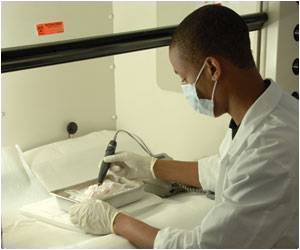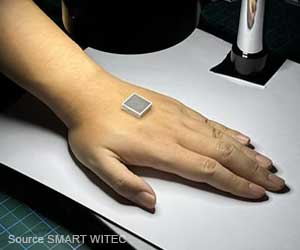Using nanocytology, a new bio-optic technique can help doctors diagnose patients with lung or esophageal cancer by simply swabbing the inside of their cheeks, finds a new study.

TOP INSIGHT
Using nanocytology, cancer diagnosis will be as easy as examining an easily accessible area of the body to uncover cancer malignancies within or in a nearby organ.
Using these bio-optic techniques, Backman can detect details indicative of “pre” pre-cancer, something that formerly could not be done with conventional microscopes.
Backman compares his diagnostic work to the development of the Pap smear. Prior to the introduction of this simple, low-cost test, cervical cancer was a top cause of cancer death among women. Before the pap smear, cervical cancer was detected via colposcopy, a more complex procedure. Once the Pap smear was introduced, all women could be screened for a relatively low cost. Those whose pap smears showed abnormalities could then be referred for colposcopy.
“That alone, with no changes in therapeutics, reduced cervical cancer mortality 20 times in the United States,” said Backman, the Walter Dill Scott Professor of Biomedical Engineering in Northwestern’s McCormick School of Engineering. “In fact, today, essentially nobody dies from cervical cancer if they’re part of the Pap smear screening program. You’re not going to get invasive cervical cancer if you get regular pap smears. Period.”
Backman has developed the technique for lung, ovarian, esophageal, pancreatic, breast, colon and prostate cancer. Backman believes the screen will be available during routine doctors’ appointments within the next three years and predicts it could cut cancer-related deaths in half.
 MEDINDIA
MEDINDIA




 Email
Email





